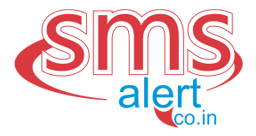| Encoding | 7bit |
|---|---|
| SMS | 1 |
| Character(s) | 0 |
| Chars in SMS | 160 |
SMS Detailed View
Legend
| – | Regular 7bit character, present in GSM charset | |
| ESC | – | Escape character 0x1B; required to access |^€{}[]~ characters |
| – | User Defined Header (UDH) of the message. Required for multipart sms | |
| – | Character present in GSM charset, encoded as Unicode character | |
| – | Character not present in GSM charset, forces to use Unicode encoding |
7-bit encoding
This is the most commonly used encoding for messages with
GSM 03.38
character set. In this 7-bit alphabet you can use only following characters:
There are also some characters in the GSM 03.38 Extension Table that can be used for the
cost of two characters by prepending escape character ESC (0x1B):
| | | ^ | € | { | } | [ | ] | ~ |
The message length for 7bit encoding is up to 160 characters.
Unicode Encoding
Unicode (UCS-2) encoding supports greate range of characters and languages compared to very limited alphabet of 7bit encoding.
If your message contains any characters not listed in the 7-bit alphabet, UCS-2 encoding is automatically used.
In this case, each message takes up a lot more space, thus the message length is reduced to 70 characters.
Multipart SMS messages
When the message length exceeds 160 characters in case of 7bit encoding (or 70 characters for UCS-2 encoding),
the message is split up to multiple separate SMS and sent to the handset separately as well.
To be able to concentate the messages on the phone, special header
(UDH)
is set for each message, which states the order and message each part belongs to. Due to this special UDH, the length of
each combined 7-bit message is shortened to 153 characters (67 chracters for UCS-2).
| Regular SMS | Multipart SMS | |
| 7-bit | 160 chars | 153 chars |
| Unicode | 70 chars | 67 chars |
